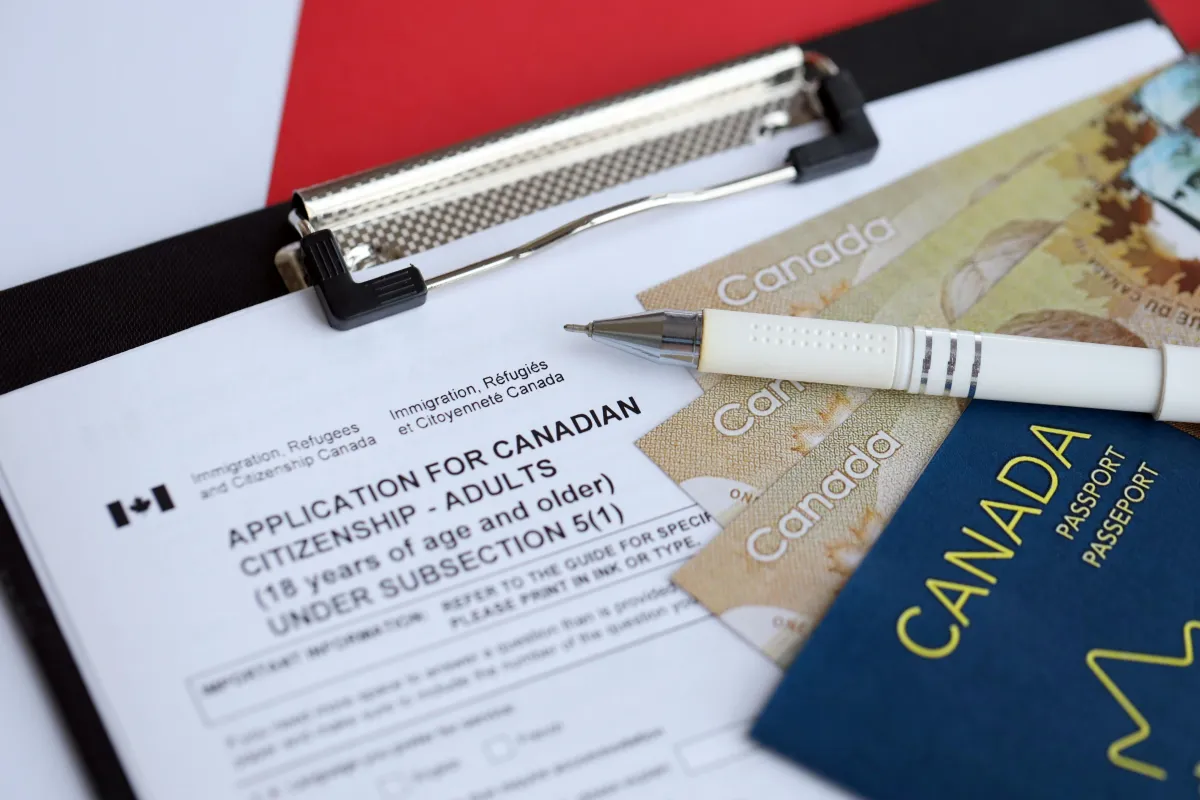Unlock Your Future in Canada, With Experts You Can Trust
Begin Your Canadian Journey
Navigating Canadian immigration can be complex — but you don't have to do it alone. At Imprint Immigration, we combine expertise, compassion, and proven results to help you study, work, reunite with loved ones, or start a new life in Canada.
Thank You for Your Interest in Immigrating to CanadA
We’re excited to be part of your journey. Canada is more than a destination — it’s a new beginning filled with opportunity, safety, and a high quality of life. Whether you're looking to build your career, reunite with family, pursue your education, or start fresh in a peaceful and welcoming environment, Canada offers a future worth striving for.
Reasons to Choose Canada

Ranked Among the Safest Countries in the World
Canada offers a peaceful, stable environment ideal for families and individuals alike.

Clear Pathways to Permanent Residency and Citizenship
Canada offers structured immigration programs like Express Entry, PNPs, and Family Sponsorship, making it easier to settle permanently and apply for citizenship in just a few years.

World-Class Healthcare and Education
Permanent residents and workers have access to free public healthcare and excellent public schooling, with options to study at globally recognized universities and colleges.

Multicultural
Canada celebrates diversity. People from all backgrounds, faiths, and cultures are welcomed and respected — inclusion is a part of Canadian identity.

Stable Economy with Opportunities for Growth
Canada’s strong economy and demand for skilled workers create opportunities in IT, healthcare, trades, finance, agriculture, and more.

Supportive Immigration System
Unlike many countries, Canada’s immigration system is transparent, efficient, and designed to help newcomers succeed — not restrict them.

Freedom, Rights, and High Quality of Life
Canada protects human rights, freedom of speech, religion, and gender equality — all backed by one of the highest standards of living globally.

A Country Where Life and Nature Thrive Together
A Lifestyle Rooted in Balance and Well-Being. Clean, Peaceful, and Inclusive. Untouched Wilderness and Natural Beauty
READY TO GIVE US A TRY?
Imprint Immigration Services Inc.
is a regulated Canadian immigration consulting firm based in Edmonton, Alberta.
Our firm is led by Shirani Daniel, a Regulated Canadian Immigration Consultant (RCIC) and an authorized representative before the Immigration and Refugee Board (IRB) of Canada.
At Imprint Immigration, we are committed to providing strategic, ethical, and compassionate immigration support tailored to each client’s unique journey. We bring clarity to the complex immigration process and stand by our clients with professionalism and integrity at every step.
What Sets Us Apart
RCIC Certification and Accreditation
Licensed and recognized by the College of Immigration and Citizenship Consultants (CICC), ensuring you receive trusted and professional representation.
Authorized IRB Representation
Led by Shirani Daniel, a licensed RCIC and authorized IRB Representative, Imprint Immigration has achieved exceptional success representing clients in complex refugee claims, admissibility hearings, and immigration appeals before the Immigration and Refugee Board of Canada (IRB).
Specialists in Family Reunification
We have a strong track record of successfully reuniting spouses, partners, and families through well-prepared sponsorship applications — even in cases where previous applications were refused or delayed.
Visitor Visa and Temporary Resident Expertise
Whether it’s a first-time visitor visa or overcoming a previous refusal, we provide strategic, carefully documented applications to maximize approval chances for tourist, business, and Super Visa applicants.
Experience with Complex and Challenging Cases
From difficult immigration histories to misrepresentation issues, we specialize in rescuing complicated cases with tailored legal strategies, thorough documentation, and personalized representation.
Commitment to Integrity, Transparency, & Results
We believe in honest communication, clear expectations, and unwavering dedication to achieving the best possible outcome for every client we serve.
OUR SERVICES
TESTIMONIALS
Frequently Asked Questions
Imprint Immigration Services
1. Who will handle my immigration application at Imprint Immigration Services?
All immigration applications are handled by Shirani Daniel & her Team in Edmonton, a licensed RCIC–IRB consultant. You will sign a retainer agreement directly with her for your immigration process.
2. Does Imprint Immigration Services help find jobs in Canada?
No. Imprint Immigration Services does not assist with job recruitment or placement. If you already have a Canadian employer, we can help with all the necessary immigration paperwork such as LMIA applications and work permits.
3. Can I apply for Canadian immigration without a job offer?
Yes, some programs like Express Entry (FSW or CEC) do not require a job offer. Our team will assess your eligibility and recommend the best pathway.
4. Do you provide post-arrival or settlement services?
No. Imprint Immigration Services does not offer settlement services such as housing, airport pickup, or job support. Our role is limited to handling your immigration paperwork.
5. How do I know if I’m eligible to immigrate to Canada?
You can complete our Free Assessment Form. We will review your information and let you know if you meet the eligibility requirements for Canadian immigration programs. Click here.
6. How can I verify that I'm dealing with the real Imprint Immigration Services?
Always ensure you are contacting us via our official website at www.imprintimmigration.com and through emails ending in @imprintimmigration.com. All retainers are signed only with Shirani Daniel.
7. What types of immigration services do you offer?
We assist with: Express Entry and PNP Family Sponsorship Study and Work Permits Refugee and Asylum Claims PR Card Renewals and Citizenship Immigration Appeals and IRB Representation
8. Where is your office located and do you accept in-person appointments?
Our office is located in Edmonton, Alberta. Appointments are available by booking only through our website. Both in-person and virtual consultations are available.
10. How do I book a consultation?
You can book a consultation directly through our official website: 🌐 www.imprintimmigration.com Choose a convenient time and provide basic information about your case. All appointments are handled by our licensed RCIC–IRB.
11. Do you help with refused visa or PR applications?
Yes. We offer assistance with: Visa reapplications after refusals Refusal reviews and strategy Appeals before the Immigration and Refugee Board (IRB), including sponsorship appeals, residency obligation appeals, and refugee hearings
12. Do you assist with refugee and asylum claims?
Yes. Imprint Immigration Services supports clients in making refugee claims within Canada, applying for pre-removal risk assessments (PRRA), and preparing for IRB hearings.
13. Can my employer or sponsor work directly with you?
Yes. If an employer or sponsor is involved in your case, they may work with us to complete the required immigration documents. However, Imprint Immigration Services does not recruit or find jobs for candidates.
14. Are your services available to clients outside Canada?
Yes. We work with clients worldwide via virtual consultations and secure document handling. You do not need to be in Canada to use our services.
COMPANY
CUSTOMER CARE
NEWS
LEGAL
© Copyright 2025. Imprint Immigration Services Inc. All Rights Reserved.

